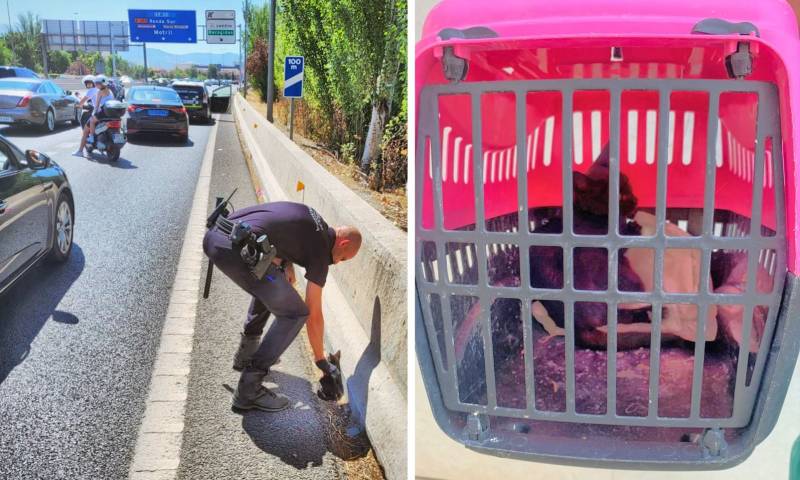Spanish News Today Editors Roundup Weekly Bulletin Aug 27
CLICK HERE FOR THE FEATURE ARTICLES "British family fined for speeding in Manchester while on holiday in Murcia" and "Tickets are finally on sale for free train travel in Spain"
As we move away from August and another summer comes to an end – one of the hottest anyone can remember – there is mixed news for this autumn. The weather will begin to turn as of this weekend, with storms and even hailstones predicted in the east of the country, while the usually chilly northwest is still on alert for high temperatures.
It doesn’t necessarily bode well for the kind of autumn and winter we can expect to have in Spain this year, with increasingly variable weather and sudden temperature changes worrying everyone from farmers to tourists.
On the upside, the much-anticipated free train travel scheme comes into force from September 1, and Renfe have already sold thousands of tickets in just the first few days since they went on sale this Wednesday.
All this, plus a curious tale from some Brits on holiday in Murcia who got a nasty surprise after they returned home to Leeds…
Fast & Furious
Gary Thornburn and Clare Beards from Leeds had left their car with a valet parking firm at Manchester Airport on August 3 before heading off for their holidays in the south of Spain for two weeks.
It was only after they returned home that they were livid to find they had been served with a prosecution notice from Greater Manchester Police for speeding in a 30mph zone, 10 miles from the airport.
The weirdest thing was that the alleged infraction took place on August 5 – two days after they had left their white Golf GTI with the meet and greet service at the airport and while they were 2,400km away!
In a statement to the Manchester Evening News, Gary said, “I knew they take the cars off site to somewhere else but you don’t think you’ll be accused of speeding 11 miles away from the airport.”
CCTV images showed a car with the same vehicle registration as Gary and Clare, but it seems that their actual car was still parked safely in the car park with the key stored securely, meaning it must have been a different car, according to airport officials.
The couple have appealed against the prosecution notice, and police have assured that any appeal against a speeding notice will see proceedings continue “until the full circumstances are established to determine if there is any case to answer”.
Investigations continue to find out the truth of who was driving the car, why they were speeding, and how they managed to take the plates off Gary and Clare’s Golf to put it on a different vehicle…
Hot under the collar
Spain is sizzling in the worst drought the country has seen in more than 60 years and one of the results is that the nation’s valuable reservoirs are swiftly drying up, sparking water shortage fears for the autumn and winter, even as
storms threaten hail and floods this weekend.
An unexpected side-effect of the hot weather up until now, however, has uncovered a historic marvel:
Spain’s very own ‘Stonehenge’, the Dolmen of Guadalperal. Usually hidden below the waterline in a reservoir in Extremadura, the megalithic stone circle is believed to date back as far as 5000 BC.
Since then, the structure has sat under water in the Valdecanas reservoir, but the recent spell of dry weather and heatwaves has reduced the water supply to just 28% of its capacity, revealing the standing stones for only the fourth time in history.
When the weather’s warm enough to lift ancient monuments from their tomb you know there’s a record about to be broken, and for Spain, as we inch towards the end of August, this looks set to become
the hottest summer since 1916.
In actual fact, “We are facing an extremely hot summer so far,” according to Aemet; June was the fourth warmest on record, July was the warmest month ever in Spain, and the first half of August 2022 was the second hottest since records began, surpassed only by the fierce heatwave of 2003.
While sun worshippers may be basking in the sunshine, this weather spells disaster for Spain’s reservoirs, and the country is experiencing its fourth driest year since 1961, with 26% less rain than normal so far.
Looking at the calendar year of 2022 up until July 31, Spain has already recorded the third driest period (behind 2005 and 2012) and the third warmest (behind 2020 and 2017), a clear sign of the worsening effects of increased human industrial action on the climate.
This charge, which is essentially a tax on appliances that use fluorinated gases, was sort of slipped through Congress when no-one was looking but it is a big deal, since it means that everyone along the supply chain, from manufacturers to supermarkets and installers, will be taxed, and this additional charge will be passed onto the consumer.
Splendid engines
There has been lots of interest in taking advantage of this deal, which has been held up by many as proof of how the government in Spain is trying to ease the pressure of the rising cost of living for common people – including expats. Travellers don’t need a NIE or a TIE or to have residency in order to benefit from this offer.
But it bears repeating that the free tickets are aimed at people who travel regularly by train – not just once or twice – and therefore are unlikely to be of much use to tourists visiting Spain for a short period.
In order to get your free rail pass, you first have to be registered on the Renfe website, which is the main train company in Spain. Thankfully it is free to sign up.
What’s not free is the 10- or 20-euro down payment for your rail ticket (depending on whether you wish to be travelling on a Cercanías overground system or on a Medium Distance line, or in certain cases even Bus Replacement Services). Providing you make at least 16 journeys before the end of December, you will get your money back.
Of course, if you only plan to travel once or twice but those tickets would cost more than 20 euros anyway, you may find it’s worth your while to get a season pass and then not make the full 16 journeys because it would come out cheaper anyway.
In the end, though, the scheme is mainly targeted at commuters and those who live in Spain and promises to ease the burden on thousands of families this autumn.
Coronavirus
Spain’s Minister of Health this week celebrated the fact that “there is a lot of light” at the end of the tunnel as the country appears to be beating the coronavirus pandemic into submission. The incidence rate has taken another dip and is well below 200 cases while hospital and intensive care admissions continue to steadily decline.
Despite this encouragingly positive turn of events, the Ministry has revealed that
there is no immediate plan to relax mandatory mask-wearing in pharmacies, health centres or hospitals, nursing homes or on public transport. On the contrary, the experts are all in agreement that with the annual flu season looming, masks will offer an “added value”.
In April this year, the Spanish government abolished mask-wearing in most indoor settings like bars, restaurants and supermarkets, but face coverings are still required in certain public places such as medical premises to protect the most vulnerable. It is mainly thanks to the successful vaccination campaign in Spain, Ms Darías added, that “has allowed us to get here”.
Murcia
There was controversy on both the roads and the water this week in Murcia.
The donkey slipped onto the AP-7 motorway at around lunchtime on Sunday August 21 on the stretch of road that runs through the municipality of Cartagena at kilometre point 800, just off the bridge.
Reports suggest that the donkey had escaped from a nearby field and managed to get onto the motorway. Thankfully, no one was hurt – not even the donkey – and the animal didn’t cause any accidents with its escape attempt.
One man who was fatally hurt this Thursday was a
resident of a Corvera private urbanisation who drowned in a swimming pool. The 64-year-old was pulled unconscious from the water by his neighbours, who performed CPR on him, but to no avail. Sadly, he becomes another statistic is a year that has already seen more drownings across Spain than there were in the whole of 2021.
At the same time, there was an uproar when over 100 boats moored in the Mar Menor next to the Isla del Ciervo – just to the south of La Manga – for a music concert on the water. The participants
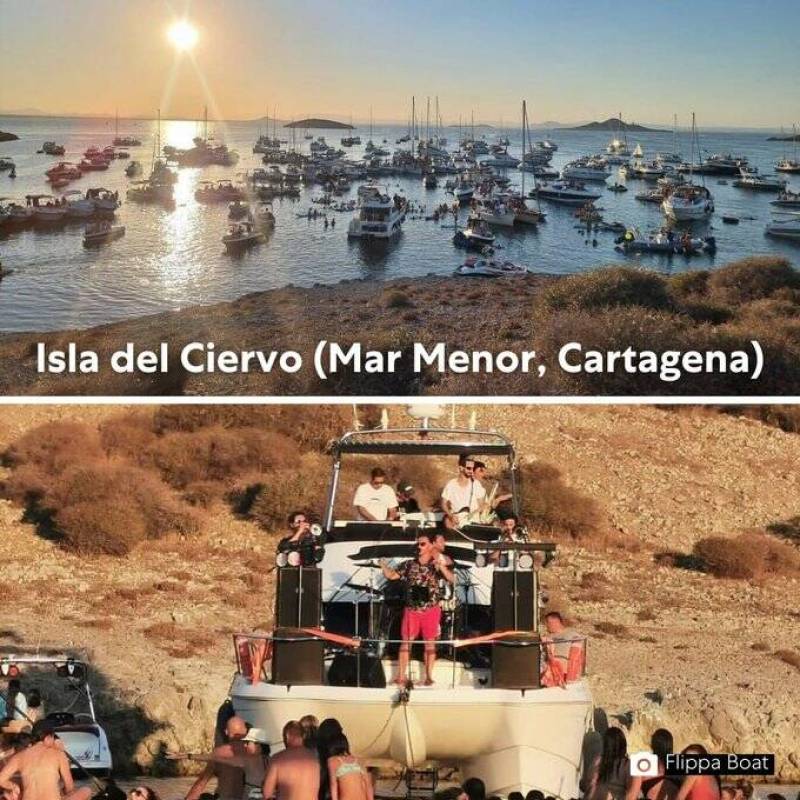
anchored their boats there to listen to a music group playing on the deck of another pleasure boat, but the problem was that they were all
moored in a protected natural area.
Neither the promotors of the concert nor the music group nor the guests had official permission to be there, and there are fears that by eating and drinking there they could have littered and caused damage to the fragile local ecosystem of the island, which includes native botanical species such as the fan palm, the cornical and the wolf’s prickly pear cactus.
Until a few years ago, the island was connected to the mainland by a narrow artificial road, but this was demolished recently to make access to the island more difficult and thus protect it. Nonetheless, the environmental group SOS Mar Menor has opined that these sorts of celebrations are “very common in summer” and must stop.
Check out our EVENTS DIARY to see everything going on in Murcia:
Spain
You may have tuned in to the all-new House of the Dragon this week, a 10-part prequel to Game of Thrones which delves deeper into the rivalries of the house Targaryen and in particular, the fierce desire of Daenerys to take her place on the Iron Throne.
Just as the original series transformed the tourism industry of Croatia, Iceland and Northern Ireland after filming began in 2011, the latest instalment has tourist bosses in Spain counting the cash already in anticipation of a huge surge in fantasy fan tourism, since
a great deal of House of the Dragon was actually filmed here.
In fact, viewers will be excited to know that the infamous King’s Landing from the show was shot in Spain’s Cáceres and Trujillo, while in this instalment, the free city of Pentos was filmed in the Granada town of La Calahorra.
For those really wanting to soak up the atmosphere, the Rusticae rural accommodation website offers no fewer than 10 on-site options where visitors can stay the night and completely immerse themselves in the experience.
This week has been rather groundbreaking in its application of the euthanasia law, which on Thursday allowed the so-called
Tarragon gunman to opt for assisted suicide rather than stand trial for attempted murder. Former security guard Eugen Sabau shot three colleagues back in December 2021 before seriously injuring a Police officer who tried to stop him at a road block. The Romanian national then barricaded himself into a remote farmhouse with an arsenal of weapons. A bloody shoot-out ensued, which left Mr Sabau paralysed and in chronic pain.
Before he could stand trial for attempted murder, Mr Sabau asked to be considered for assisted suicide, which is legal in Spain if the patient is suffering from chronic pain. Despite the protests of his victims, who asked that justice be served and a sentence handed down before he died, the gunman was granted his wish to end his life.
However, the courts denied an eleventh-hour request that Mr Sabau be allowed to die in a civilian hospital without police surveillance.
Lawyer for the injured officer, José Antonio Bitos, has strenuously argued against the decision to euthanise the shooter before he could stand trial, arguing that the decision sets jurisprudence for other serious crimes, such as terrorism or sexual assault on minors.
Alicante
The 58-year-old was riding along the top of the cliff face on Wednesday afternoon when she lost control of her rented scooter and teetered off the edge. Worst of all, among the family members present was an 8-year-old boy who is believed to be the woman’s grandson witnessed the whole thing, and who himself suffered minor injuries while trying to save his grandmother.
Rescue workers undertook a two-hour rescue operation on the steep, rocky outcrop, but unfortunately when they reached the British woman she wasn’t breathing and was pronounced dead a short time later.
Eventually, his body was located this week under an almond tree by the owner of the farm in Abanilla. The mobility vehicle that Hugo was using was found beside his body, and it’s thought he may have run out of battery and been unable to get back home or find help. In the end, his body was found just 8.8 kilometres from his Alicante home.
Police and the local City Council had been made aware of the issue by complaints from several neighbours, who photographed the poor animal trying to take shelter in what little shade was available on the roof.
But when officers went round to the premises to question the owner, it seems they were satisfied with the response that “Everything is fine” and away they went. Two days later, the dog was dead.
Now, animal rights groups in Torrevieja are calling for an investigation into failings by the authorities into how they could let this happen, and of course prosecution for the animal’s owner.
Andalucía
Two of the stolen boats were found in Algeciras, Cádiz and the other was spotted as far away as Malaga. Once the thieves realised police were onto them, they ditched the boats and made a run for it on foot. All three vessels have since been returned to their legitimate owners and the search continues for the culprits.
Meanwhile, tourists in the equally snazzy Puerto Banús area of Marbella have been the target of three men and three women who allegedly
stole high-end watches worth more than 37,000 euros. The robbers mainly took advantage of the inebriated state of the watches’ owners to nab their timepieces, and in one case resorted to violence to carry out the theft.
Police initially ruled out a connection between the various cases due to the differing suspect descriptions given by the victims, but eventually linked three thefts together and locked up six people in relation with the crimes.
A group of British women in Marbella also made headlines this week after
bouncers at the Spanish nightclub they were at lost control and beat them mercilessly after throwing them out. In a video widely shared on social media, the girls can be seen being hit and pushed to the ground violently and repeatedly by the bouncers, one of whom even took off his belt in front of onlookers and began to make threatening gestures as if he were about to start walloping the tourists with it.
Elsewhere, it’s the police themselves who have come under scrutiny for trying to do their daily Act of Random Kindness. Officers in Granada
stopped traffic on the motorway earlier this week to save a tiny, helpless kitten that was stranded by the roadside. So far, so heroic. But when they published photos of their exploits online, they were lambasted for dangerous behaviour that could potentially have caused a road accident, especially as they weren’t wearing high-visibility jackets. Proof that no good deed goes unpunished.
You may have missed…
- 5 million cars expected on Spanish roads this weekend as August holidays come to an end.
This is the last weekend in August, which means that almost 5 million vehicles will take to the roads as people return from their holidays.
- Elderly French woman killed in Costa Blanca bull run.
A 73-year-old French woman lost her life on Thursday August 25 at the annual bull run in the Alicante municipality of Beniarbeig, bringing the total number of deaths at bull fighting festivities in the Valencian Community to seven, the highest death toll since 2015.
- Important changes to the Murcia-Madrid rail connection: no trains through Archena and buses straight to Albacete.
Travel links on the Murcia to Madrid train line is changing once again — from now on, a bus will directly connect Cartagena, Torre Pacheco, Balsicas-Mar Menor, Murcia and intermediate stations with Albacete train station for the high-speed AVE train to Madrid, without changing trains in Archena.
- Huge improvement in Mar Menor water quality, according to official sources.
The latest official data suggests that the state of the Mar Menor is now “better than late last summer”, and that the appearance of large numbers of the Australian spotted jellyfish in the Mar Menor may actually serve to improve the situation further.
- Two La Manga chiringuito beach bars fined over excessively loud music.
Following numerous complaints from local residents in La Manga, the Police have handed down hefty fines to two chiringuitos on El Vivero and Los Alemanes beaches for excessive noise.
That’s all from us for this week. We’re coming ever closer to our 48th bulletin since we restarted the newsletter last year, which means it’ll soon be time to renew your subscription. Thanks to those of you who have already signed up again! Those who haven’t only have about a week left to renew at our special reduced discount rate. Click
https://murciatoday.com/weekly_bulletin.html to find out more, and be sure to keep checking your email inbox (and Spam folder, just in case) for a direct message from us on renewing your subscription.
Thanks for reading, as always, and we’ll see you again next week!
Got a business in Spain? Advertise with us.
Murciatoday.com and its affiliated Spain Today Online sites can help bring your business to a wider audience – over 350,000 unique readers every month. We’ll provide you with custom-made banner ads, a personalised listing in our Business Directory and special feature articles about your particular business niche.
Don’t limit yourself to the yellow pages. Get online! After Covid, can you afford not to? Contact us today to find out how we can get wider exposure for your business.


 Spanish News Today
Spanish News Today
 Alicante Today
Alicante Today
 Andalucia Today
Andalucia Today


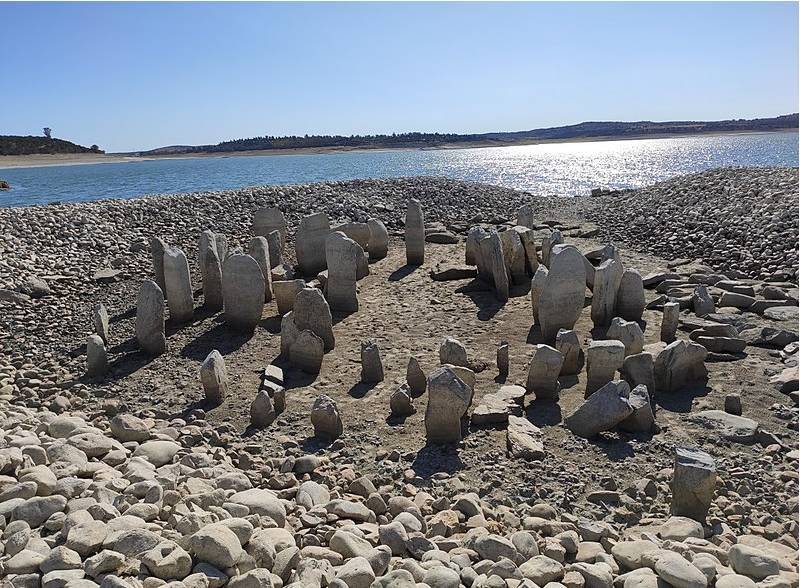
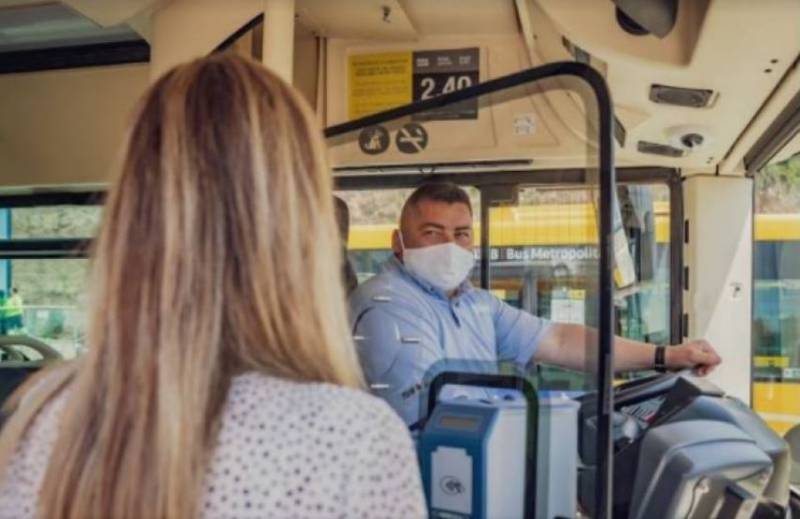
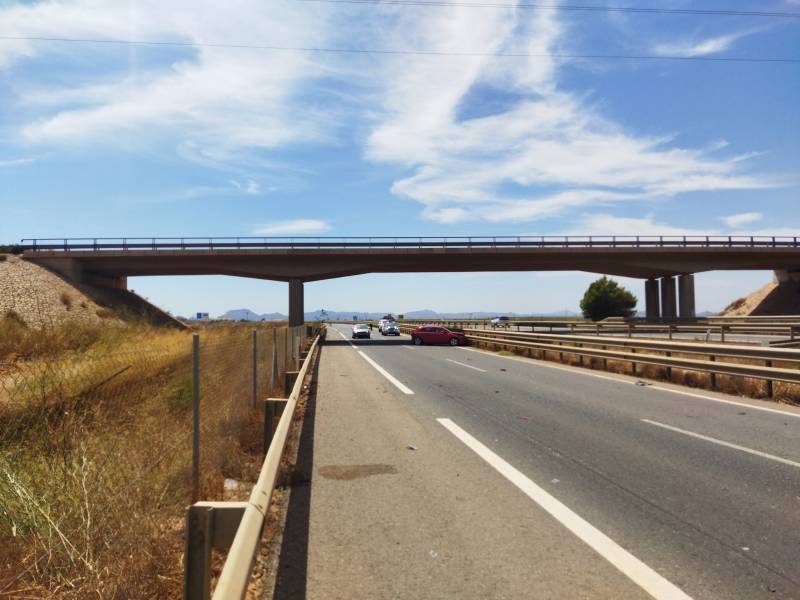 First, an escaped donkey that wandered onto the AP-7 dual carriageway in Cartagena caused traffic delays as drivers slowed down to stare at – and avoid hitting – the runaway animal.
First, an escaped donkey that wandered onto the AP-7 dual carriageway in Cartagena caused traffic delays as drivers slowed down to stare at – and avoid hitting – the runaway animal. anchored their boats there to listen to a music group playing on the deck of another pleasure boat, but the problem was that they were all moored in a protected natural area.
anchored their boats there to listen to a music group playing on the deck of another pleasure boat, but the problem was that they were all moored in a protected natural area.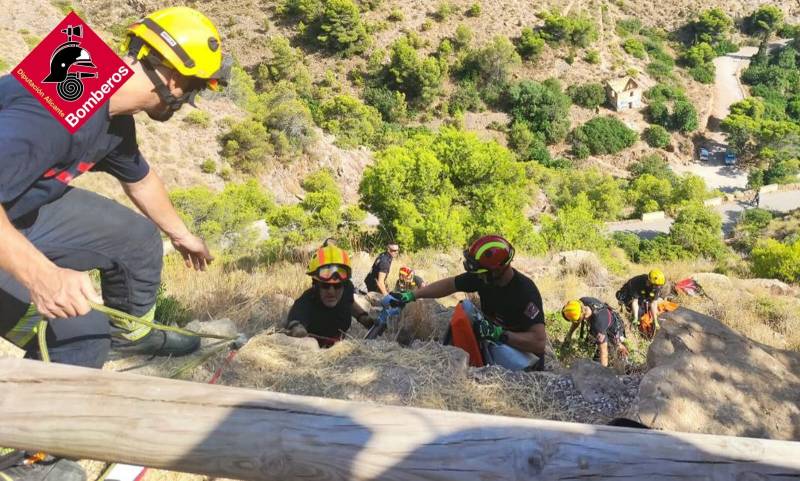 Several tragic events took place in Alicante province this week as we wind down to the end of August. Most shocking was probably the story of the British gran who died when she toppled over the side of a cliff in Benidorm on her electric mobility scooter as she rode along with her family.
Several tragic events took place in Alicante province this week as we wind down to the end of August. Most shocking was probably the story of the British gran who died when she toppled over the side of a cliff in Benidorm on her electric mobility scooter as she rode along with her family.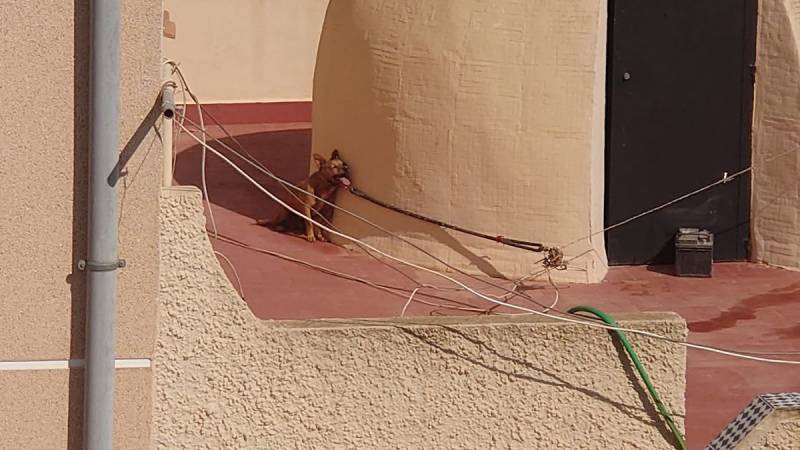 The news wasn’t much better for a dog in Torrevieja, which also died after its owner left it tied up on the roof in the blistering sun for three days straight without any food or water.
The news wasn’t much better for a dog in Torrevieja, which also died after its owner left it tied up on the roof in the blistering sun for three days straight without any food or water.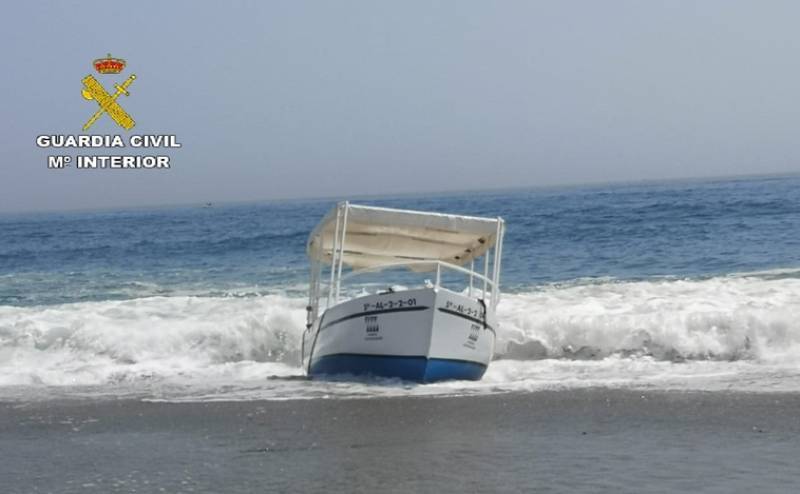 To the relief of wealthy yacht owners in Andalucía this week, police managed to recover three expensive pleasure boats which were stolen from San Roque’s Sotogrande, the largest privately-owned residential development in the region and the fourth most expensive place to buy property in Spain.
To the relief of wealthy yacht owners in Andalucía this week, police managed to recover three expensive pleasure boats which were stolen from San Roque’s Sotogrande, the largest privately-owned residential development in the region and the fourth most expensive place to buy property in Spain.